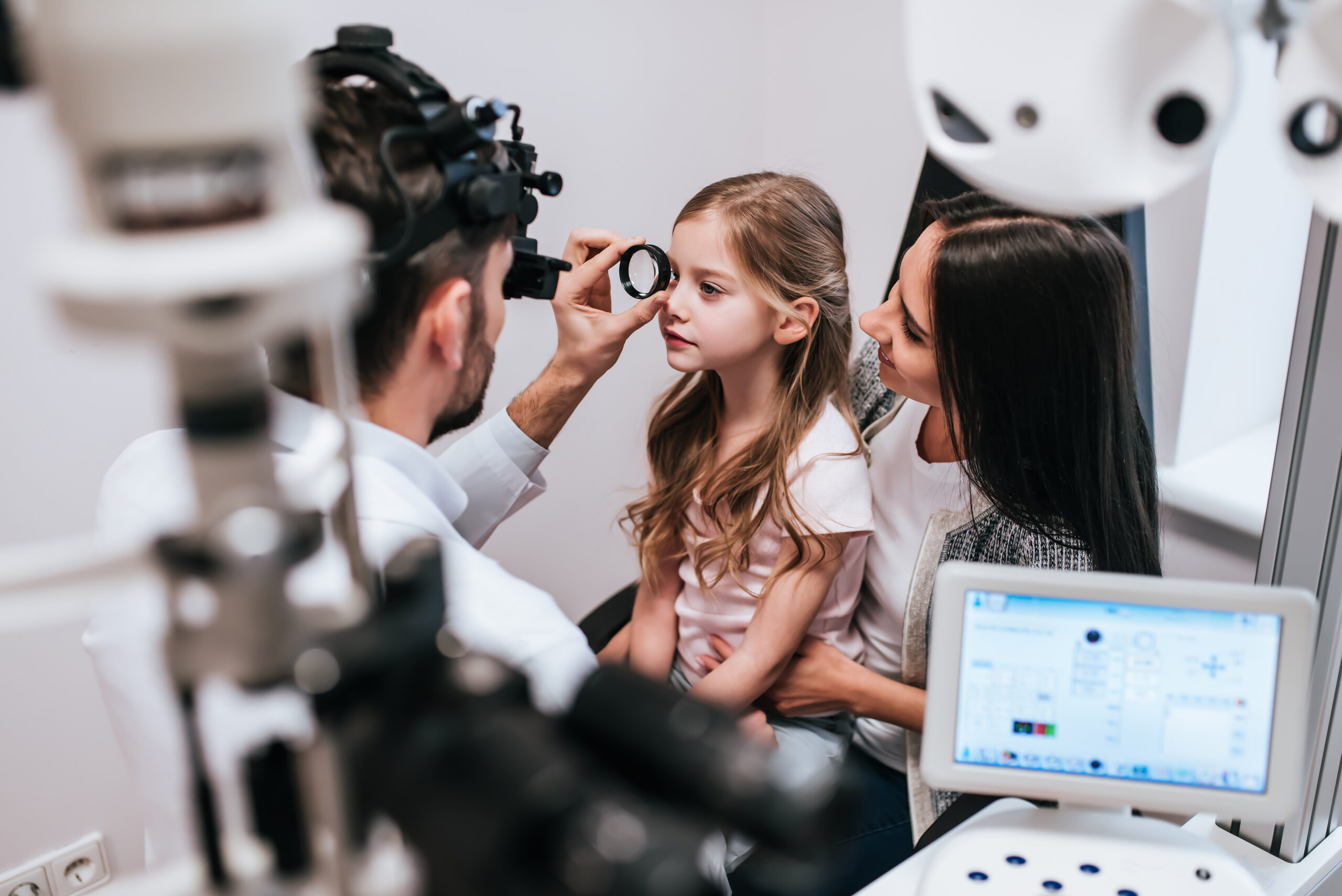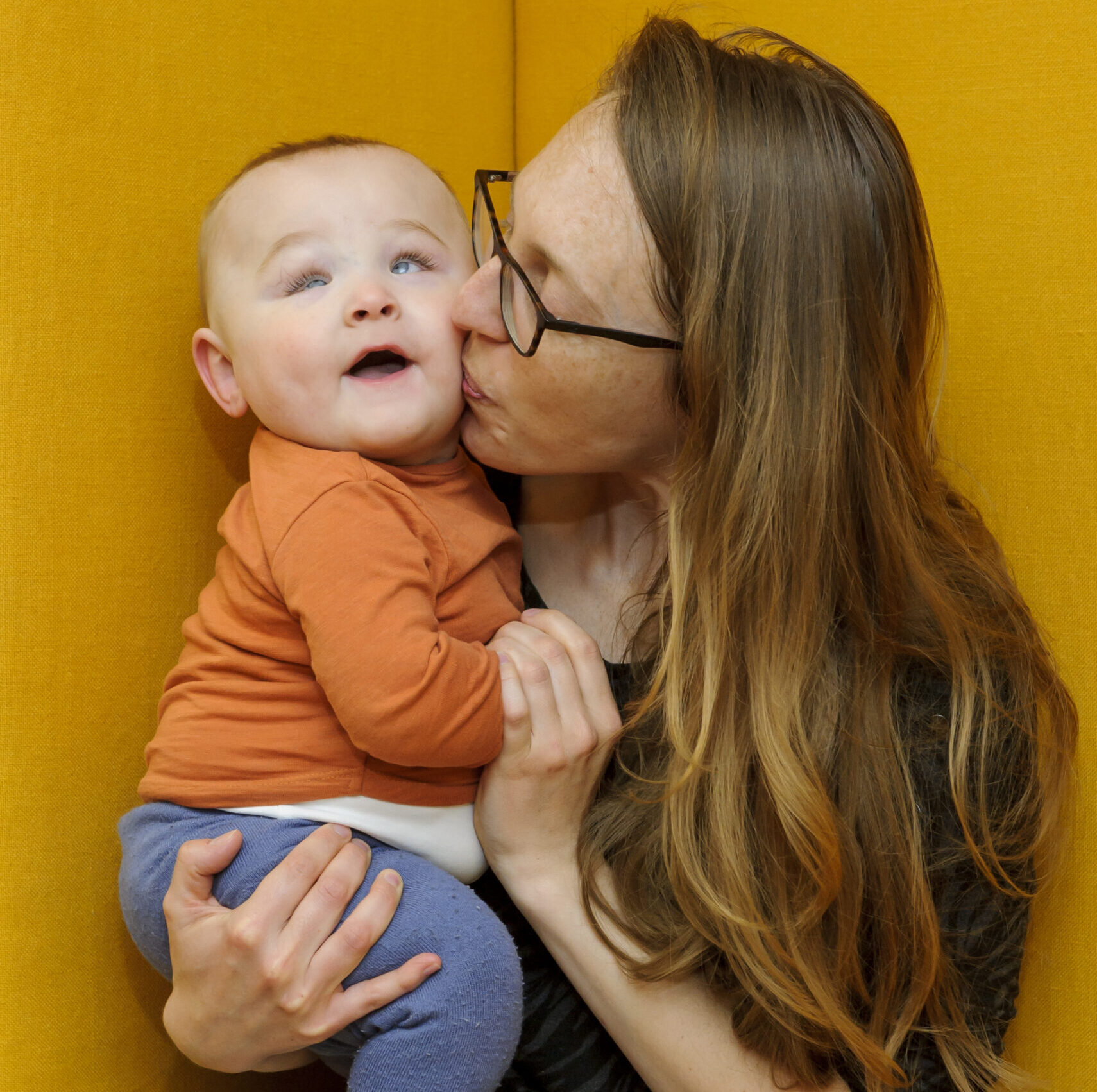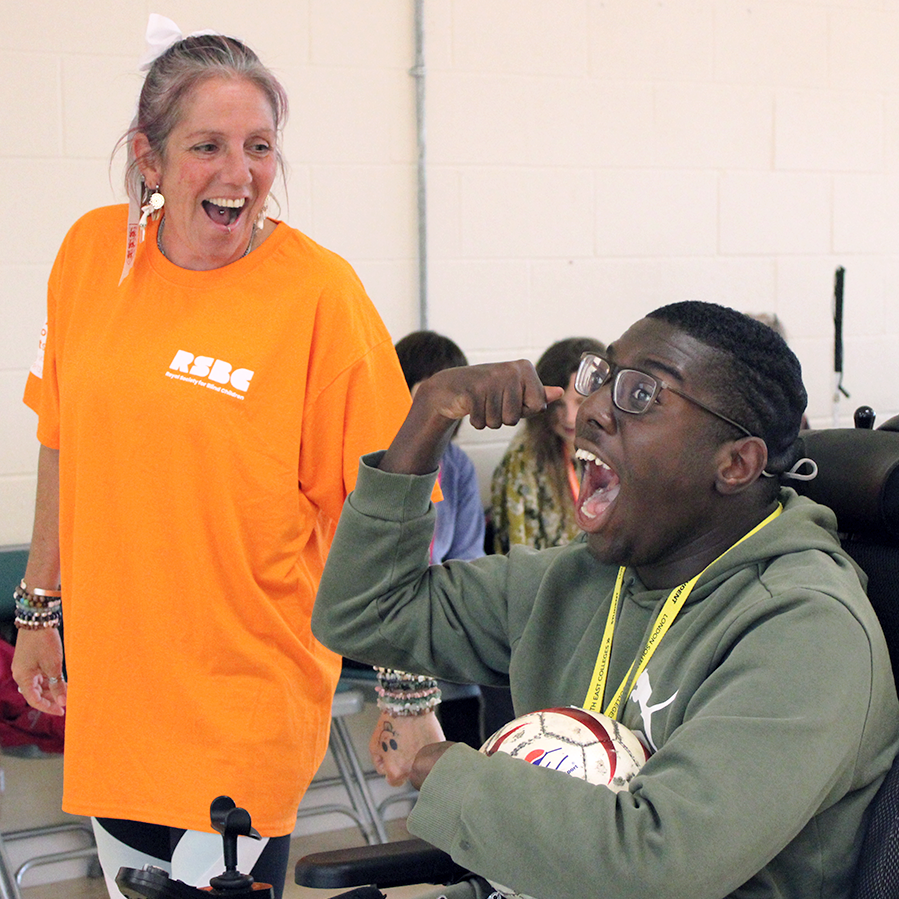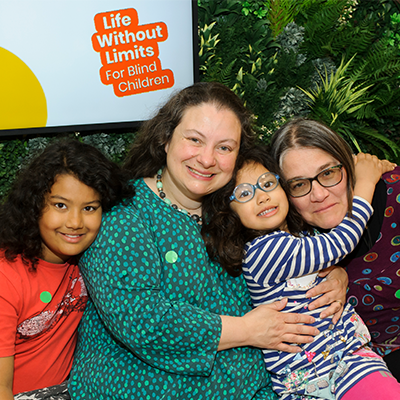Transitions
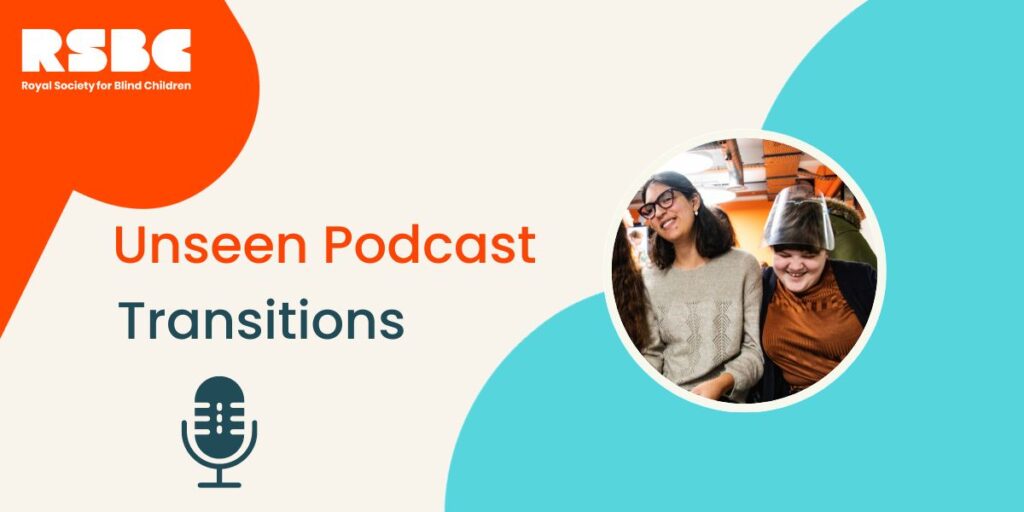
This episode explores the topic of transitions with two members from the Youth Forum – Rona and Camille – who share their personal experiences of moving from one stage in life to another.
Rona shares her journey of moving from a mainstream school to a special college for the visually impaired. She talks about the challenges she faced, the adjustments she had to make, and the support systems that helped her through this transition. Camille, on the other hand, talks about her experience of moving from France to England and adapting to a new culture.
Through their stories, Rona and Camille offer valuable insights into the complexities and rewards of navigating transitions.
If you or someone you know is interested in the RSBC activities, please learn more about our programme and sign up to the range of activities going on every month at the Life Without Limits Centre in London or online.
Listen to the episode
Transcript
00:00
This is Rona Smith for the RSBC unseen podcast discussing transitions with Camille Holder.
00:08
Thank you very much for that Rona. And we also have Alex man and Fala Buggy here from the RSBC too. And we’ll just be asking Ron and Camille a few questions about theit different transitions in life, and two different ones that might have some similarities, but some differences as well. And so Rona, do you want to tell us about what transition you’re going to talk about? And I guess the first thing that popped to mind are the first things that you want to share.
Read More00:43
So when I was thinking about transitions for this podcast, I thought the topic I should focus on should be my transition from a mainstream college into a specialist college. I have spent all my life in mainstream school and it’s only this year that I’ve moved to a specialist school. So I I’ve actually moved out of my home area out of county to the Royal National College for the Blind in Hereford. And that is my transition.
01:25
And How was that for you? Over the last six months? Did you say?
01:31
I think so well, I started in September, we’re now in February. So probably six months now. I thought it was going to be really hard. Because I’ve never been away from home before, not for anything longer than a week or five days. But I’ve actually settled in really well and made some consistent friendships with a group of consistent students, so I’m doing very well academically. And I’m learning lots of different kinds of skills, not just academic skills, but independent living skills and mobility, doing laundry, making breakfast, and managing my own stress. The main way I tend to deal with stress is to actually contact my home. The college has a very good well being team that I can speak to as well. And sometimes a simple thing like giving my friend a hug.
02:28
Yeah, it’s important.
02:31
Yes, because it’s a residential college that they have to have a well being team in place because they’re dealing with students with additional needs. And we’re living away from home together.
02:42
Yeah, yeah. So anything that you miss from mainstream, versus what you have now in residential, I mean, look in specialist education.
02:54
So the one thing I do miss about not being in mainstream is the fact that I’m not at home, which means I can’t see my friends regularly. And many of my actual friends are, are sighted. And I felt that being in mainstream school meant that I was interacting with able bodied people as well as disabled people. And this is a very good skill to have. So I do miss that. And I do also miss things like not being able to see my PA regularly. And not being able to do home things like enjoy some good home cooked food. And I know that sounds really silly, but it probably isn’t that sometimes home cooked meals are the best.
03:45
I agree.
03:48
And things like Mother’s Day, Father’s Day, I’m going home for Mother’s Day. So that’s not too bad. But Father’s Day and my birthday. I can’t go home for those because they’re too close to holidays.
04:00
Yeah, that’s great. I’d say it’s really important to make sure you have that time with your your family as well also are the pros of going to a specialist school,
04:12
The pro pros that I meet that I’ve met new friends, I’ve got more freedom and independence to go out and do things that I don’t have at home. Because I’m restricted to one I can go out with my PA or with a member of my family, or even a family member of a friend that knows me very well. I have free time. So I do some socializing. I do need to socialize more because I’m a very I’m a workaholic. So I study a lot and I do need to learn to take more breaks. I’m sure we’ve all been there. Yeah. can be tricky. I’ve been tracking how how much my mobility and independence has improved over over This is how to date, five months, five or six months. And when I arrived at the college, I didn’t know any of the roots of the college, I was literally asking for transfers everywhere. But now I can pretty much get around the college without any help. And I’m even working on some outside routes. So things like to the local shops. Well, that’s mainly the only route and I’m focusing on at the moment, because we always start, they always start small, and gradually build up so that we’re not learning too much at the same time.
05:39
Was it difficult to choose what school to go to?
05:42
No, it wasn’t because we knew I had to go somewhere to get these independent living skills, because I’d been at my previous college placement for five years. And my independence skills were basically going nowhere. I was not really learning a lot of independent living skills. I wasn’t really gaining confidence in the kitchen. The truth was that although college were great, in terms of the academics, they’re a mainstream College. They’re not designed to support with the skills that are needed for VI person that’s supposed to be done at home. But there are issues at home that mean, I don’t get the opportunities. So I needed a placement where I could have the opportunities without the issues. And Hereford was really the only option we knew of. There are other specialist schools around the country, but they’re mainly for secondary age children or even primary age children.
06:46
Yeah, I think you might have already discussed your biggest challenge. But is there any other bigger big challenges that were like surprising to you, that you were able to overcome?
06:56
So like I said, I thought that the biggest challenge was going to be moving away from home. But I’ve actually managed that side of things pretty well. The second biggest challenge for me, I feel is being able to manage my workload, and being able to not stress so much. There’s a lot of stressful things going on this week. I need to learn to manage stress, but better, because I’m not at home, I can’t really manage it the same way I would at home. So that is the second biggest challenge for me.
07:32
Now, I just wondered, what was the one thing that you couldn’t have done before moving to a specialty school that you can do now, my mobility,
07:40
I think my mobility has really come a long way. Because when I was on my, in my home area, I basically held on and did sighted guiding pretty much everywhere. Nowadays, I barely use sighted guiding at all. I’m walking independently 99% of the time. And also I’m proud that I can. I’m starting to manage my own laundry, and to make my own bed. Those are skills I never really had the opportunity to gain in practice back home.
08:20
And final question, what advice would you give other young, visually impaired people thinking of transitioning,
08:28
Asked for help. rely on friends for cuddle, take everything as it comes. Be open minded, because there’s never a dull moment here. It’s all always different, always something going on. And sometimes you need to take things with an open mind. Focus on the positives. Sometimes it’s really hard to focus on the good, but in life, not just in college, you have to do that. Taking time to look over things as well reflect on what you’ve done, how far you’ve come. That’s really my only advice for young people.
09:10
That’s really good advice. Rona. Yeah, with picking a school and getting through life, as well.
09:17
Some of the things I found, and necessarily, some cons of coming here is tackling my annual review alone, which I had last week, and it did go very well and dealing with my health on my own. So recently, I wasn’t very well and I had to manage that in a different environment where the staff don’t know me particularly well. I got through it, but it was quite, it was quite a shock to be honest.
09:48
I can imagine that really. I’m really glad your annual review went well.
09:52
Yeah. Yeah, it was last Thursday.
09:56
Very good. I maybe everyone listening Um, knows what an annual review is, but do want to tell us what it is.
10:04
So an annual review is like a basically, it’s a subject review, where they receive loads of reports from your teachers and your parents, not so much your parents at this stage of my life, because I’m old now, but I did ask my mum to do something for me. And they basically read them all out. And we analyze the progress that’s been made during the year. And we check your care plan, which is your ehcp, education, health and care plan. And we made some new objectives and signed the old ones off if they’ve been achieved, and some might be ongoing, and some might be in progress, and some might just not have been achieved at all.
10:49
And it all went well. How are you?
10:52
Yeah, how academically? There was nothing surprising. Good attendance, good attitude, good behavior. Good for learning stuff I’ve heard before throughout my educational career.
11:05
Great, great. That’s a huge achievement to do that on your on your own as well. And while at a different school away from your friends and family. So yeah, well done. Move on to Camilla then.
11:19
Thank you for that.
11:21
Yeah, thank you, Rona. So Camille, you can take your time, and just try and speak into it’s close to the microphone as you can as well, so we can hear you.
11:30
For me. I have been useful for a while. But I now have finished school about about a year ago, and have now started work in a community center, thanks to my neighbor, Tim, who, and then we do love to forgive me, me, but I’m essentially reaching people and see how I can help them. But wasn’t easy. Either. After a while, it’s very easy for us to do it in the end.
12:14
Yeah. There’s always lots of challenges, and you just kind of have to keep going and overcome them. And then they’ll probably be new challenges. Yeah. So Camille, do you want to tell us about your story of transition? What what is it that you want to talk about today?
12:34
Well, when I was in France, I was in a, in a special needs school. And then when I moved here about 11 years ago, mainstream secondary school, it was kind of tough at first, because I didn’t know the language, or hazard terms between firms learning English, even why that’s my parents, I would never learn English. I now speak as I see through really well known, but it’s, it was tough at first, especially, especially 11 years ago.
13:07
Yeah, no, definitely. You said to your parents that you would never learn English. Yeah. How did you do that on what helped you learning this so fluently? Now?
13:23
To be honest, I can’t remember exactly, but I do know that my teachers in France and then I also had a show that was a French teacher that taught me English. When I first came here was made it easier for translations.
13:43
The fellow person who is multilingual, which languages would you say is your strongest one now?
13:53
It depends. Because if you’re talking about speaking I’m fluent in both, if you’re talking about writing, it’s much easier to write […] in French I don’t know why.
14:05
You can relate Alex. Yeah, so what was the most surprising thing about moving to the UK from France? Where in France were you living as well Camille?
14:16
I was born in Paris but lived in Lille most of the time. Long story because I live I was born there. But then I lived in London for a little bit and then came back to France admitted sister and then came back here.
14:33
Yes, Your French is better than your little sisters. Right? If you’re the oldest sibling. When he was in France, what are any charities for vision loss like ours?
14:49
No. Our journey learns about charities to VI wasn’t and I got here actually had no idea what what Zarzis were I didn’t even look when I was younger.
15:01
So do go back very often.
15:04
My dad’s works in France every week. So we’ll go see him in France. Boat to get to Belgium.
15:13
This wasn’t on your list of questions. So I apologize. But I think it will be very interesting for a lot of listeners. What sort of accessible activities that you would recommend for someone who’s traveling to France?
15:28
Depends if they have because I think the US I even have my cane with me. The people are very sweet. People here, that very nicer here than in France. But I did have it started when I started using my cane they were understanding but also to train people were very, I’m spending a lot at the station. Opening airports as well.
16:03
So what would you say the biggest difference between obviously, you go back to France, quite often you’re here for most of your life, because you’re living here. In France, apart from the language, and maybe the food when it comes to VI, would you say people in England are more supportive? Or they’re more aware of your needs and abilities? That kind of stuff? Or what would you say? Especially in France?
16:30
I mean, I can’t really remember because I’ve been in the school, the school system in England is better than it is in France. And yes, I do think people are more understanding here, especially that they have special charities for VI, not like in France, where there’s not as much support. I’m sure my mom agree on that one.
16:54
Right. And what would you say is the biggest cultural shock when you came over here? Oh, my God, I can’t believe they do this.
17:02
Me It’s pretty cool, too. But it’s only when we both did some shopping in England and France. We can’t find as much things as we would like, from things as we’d like, here than we do in France. In terms of food. Particularly.
17:20
You have an example.
17:24
From my favorite food, you may find disgusting, but I love ragworm snails and this is something that we would never find in England. We do that we do here.
17:40
Yeah, I’d say it’s difficult to find it here. Any other cultures shocks? The food is such a big thing in France, you know that it’s really known for its food and culture.
17:54
It’s wine, it’s cheese. Just one more question from me, then. I just want to know, because we have a lot of people coming into the UK now. So you get people from Ukraine coming here. We’ve got a few young people joining Rsbc on Hong Kong BNOs for people who are new to England that are visually impaired, what sort of advice would you give them?
18:27
I mean, as long as they you managed to find the help they need and to try and find different ways they can get some help with different charities and get as much help as they can from their families and around England that they can
18:46
Find a good support network. Yeah, basically. Rona, do you have any questions for Camille?
18:52
Um, yes, I have two. So my first one is, What were people’s are what are people’s attitudes to VI people like in France?
19:05
I mean, they’re not as nice as they are here. But I’m sure if you explained them.
19:13
Oh, mean by that is do you feel you get this you would get the same level of help here in France, as you would here like the activities that you do to help with employment?
19:26
No, no, definitely not.
19:30
Your friends you’ve made you know, the things that you enjoy best about the UK? Do you think that that support would be available to you in France?
19:39
I am not really sure. Because when I when I was in France, I was I was not. I was younger. I didn’t. But now Well, I haven’t really done much research, but I do know that right now in England has a lot more services for VIs than they do in France.
19:59
And my second question was how do you keep in contact with people from France, do you like other than visiting them when you go to visit France with your parents do you like keep in contact with them via social media to maintain those connections with your past life ?
20:20
I don’t use those media but I do WhatsApp them I have their phone number or by email, but I would not. I don’t use Twitter, Facebook and Instagram even though I do have.
20:38
Thank you very much for listening to this episode of the RSBC Unseen podcast talking about transitions with myself, Rona Smith, Camille holder, and Fala. buggy and Alex Man are lovely hosts. If you’ve liked this podcast, please leave a review and check out our previous podcast episodes. Using Spotify, Apple podcasts or your regular podcast app. Thank you very much for listening.
Transcribed by https://otter.ai
